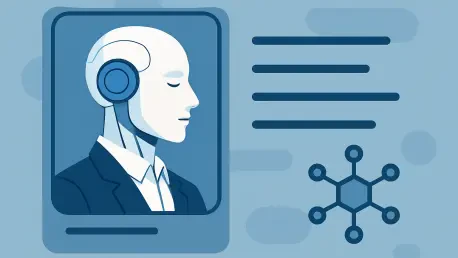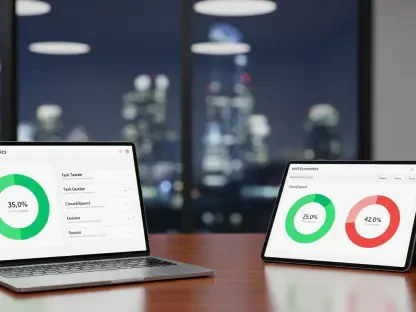In a world where technology often sidelines entire cultures, Nigeria has taken a bold step forward with the introduction of N-ATLAS, an innovative open-source AI language model crafted to recognize and transcribe spoken words in Yoruba, Hausa, Igbo, and Nigerian-accented English. Unveiled by Dr. Bosun Tijani, the nation’s Minister of Communication, Innovation and Digital Economy, during a significant global event at the United Nations General Assembly in New York, this development signals a pivotal moment for AI sovereignty. N-ATLAS stands as a beacon of hope, addressing the glaring gap in global AI systems that frequently ignore African languages and cultural subtleties. By focusing on local linguistic diversity, it not only challenges the dominance of Western-centric tech but also positions Nigeria as a frontrunner in creating inclusive digital tools that resonate with its people, paving the way for a future where technology speaks everyone’s language.
The Promise of N-ATLAS in Key Sectors
Transforming Education and Healthcare
N-ATLAS emerges as a game-changer for critical sectors like education and healthcare, where communication barriers have long hindered progress. Edtech pioneers are harnessing this model to develop offline learning applications that deliver lessons in native languages such as Yoruba and Hausa, ensuring that children in remote areas can access education without losing their cultural context. These tools are tailored to function without constant internet access, a vital feature given the connectivity challenges in rural Nigeria. By embedding local dialects into learning platforms, N-ATLAS helps preserve linguistic identity while equipping younger generations with knowledge in a format they understand best. This approach not only boosts comprehension but also fosters a sense of pride in cultural heritage, making education a more inclusive and relatable experience for millions of students across the nation.
In healthcare, the potential of N-ATLAS to enhance patient care through tailored speech recognition is equally transformative. Imagine a scenario where individuals can describe symptoms in Nigerian-accented English or Igbo, and the system accurately interprets their words for medical professionals to provide precise feedback. This capability could significantly reduce misdiagnoses caused by language misunderstandings, especially in regions where English fluency varies widely. Developers are already exploring ways to integrate the model into telehealth platforms, enabling doctors to connect with patients who might otherwise struggle to articulate health concerns. Such advancements promise to improve access to quality care, particularly for underserved communities, while highlighting how localized AI can address real-world challenges in ways that generic global models often fail to achieve.
Empowering Agriculture and Beyond
The agricultural sector, a backbone of Nigeria’s economy, stands to benefit immensely from N-ATLAS through voice-based solutions that cater to farmers’ linguistic needs. Picture rural farmers accessing real-time advice on crop management or pest control by speaking directly into a hotline in their native tongue, whether it’s Hausa or another local language. This eliminates the barrier of navigating complex text-based systems or struggling with unfamiliar accents in English. Early experiments with the model suggest that such applications can deliver critical information on weather patterns or market prices, empowering farmers to make informed decisions swiftly. By aligning technology with everyday communication styles, N-ATLAS ensures that vital resources reach those who need them most, potentially boosting productivity in a sector that employs a significant portion of the population.
Beyond agriculture, the framework of N-ATLAS offers a versatile blueprint for innovation across diverse industries, from small businesses to public services. Developers are beginning to explore its integration into customer service platforms, where local language support could enhance user experiences for Nigerian entrepreneurs interacting with clients. Additionally, public sector applications might include voice-activated systems for accessing government services, making bureaucratic processes more approachable for citizens unfamiliar with formal English. The model’s adaptability sparks inspiration for creating solutions that mirror the daily realities of Nigerian life, ensuring that technology serves as a tool for inclusion rather than exclusion. This broad applicability underscores the far-reaching impact that a culturally attuned AI model can have on reshaping societal interactions at multiple levels.
Challenges in Building a Robust AI Ecosystem
Infrastructure and Funding Barriers
Despite the optimism surrounding N-ATLAS, systemic hurdles in infrastructure pose a formidable challenge to its widespread adoption and success. Nigeria’s AI ecosystem grapples with limited access to high-powered computing resources, such as GPUs, which are essential for training sophisticated language models. Many developers must rely on foreign cloud services like AWS or Google Cloud, a dependency that not only increases costs but also raises critical concerns about data control and national autonomy. The lack of local computing infrastructure means that scaling projects like N-ATLAS remains an uphill battle, as the necessary technological backbone is often out of reach for many innovators. Addressing this gap requires strategic investments to build domestic capabilities that can support ambitious AI initiatives without external reliance.
Funding constraints further complicate the path forward, as government support for AI research in Nigeria appears modest when compared to nations like Egypt, which have set aggressive targets for technological advancement. While some backing exists, such as sponsorship for academic papers, the scale of investment falls short of what is needed to propel N-ATLAS into a globally competitive tool. Without substantial grants or access to resources, developers and researchers face difficulties in sustaining long-term projects or expanding the model’s capabilities. This financial shortfall risks stunting Nigeria’s progress in the international AI race, even as the potential for groundbreaking impact remains evident. Bridging this divide calls for a concerted effort to prioritize funding mechanisms that empower local talent to turn visionary ideas into tangible outcomes.
Data Sovereignty and Community Support
The reliance on foreign tech infrastructure for hosting and processing data tied to N-ATLAS brings to light pressing issues of data sovereignty that cannot be ignored. When sensitive information is stored or managed on servers outside Nigeria’s borders, questions arise about who ultimately controls this data and how it might be used. This dependency undermines the very goal of AI sovereignty that initiatives like N-ATLAS aim to achieve, as national autonomy over digital assets remains compromised. Developing local data storage and processing solutions becomes imperative to safeguard privacy and ensure that the benefits of homegrown technology stay within the country, reinforcing trust among users and stakeholders who engage with these tools.
Equally critical to the success of N-ATLAS is the establishment of robust community support and comprehensive documentation to guide its use. Experts emphasize that without active collaboration between developers, researchers, and the private sector, the model risks being underutilized despite its potential. Clear guidelines and accessible resources are essential to help innovators navigate the complexities of integrating N-ATLAS into practical applications. Building a vibrant community around this tool involves fostering knowledge-sharing platforms where challenges and solutions can be discussed openly. Such efforts would ensure that the model doesn’t remain a theoretical achievement but evolves into a dynamic resource that drives real-world change through collective input and sustained engagement across various sectors.
Cultural Stakes and Broader Implications
Preserving Linguistic Heritage
At its heart, N-ATLAS carries a profound mission of cultural preservation, tackling the alarming reality that less than 2% of Africa’s over 2,000 languages are represented in modern AI systems. This stark underrepresentation threatens the survival of countless dialects in the digital age, as technology increasingly shapes how societies communicate and preserve knowledge. By embedding languages like Yoruba, Hausa, Igbo, and Nigerian-accented English into its framework, N-ATLAS acts as a digital lifeline, ensuring that these tongues remain vibrant and relevant in technological interactions. This initiative not only safeguards linguistic diversity for future generations but also affirms the importance of cultural identity in a world often homogenized by global tech standards, setting a precedent for other African nations to follow.
The impact of preserving linguistic heritage through N-ATLAS extends beyond mere representation, influencing how communities engage with and trust technology. When people can interact with digital tools in their native languages, it fosters a sense of inclusion and ownership, breaking down barriers that often alienate non-English speakers from innovation. This cultural alignment can drive greater adoption of tech solutions in everyday life, from education to commerce, as users feel seen and understood by the systems they use. Moreover, protecting these languages in AI contexts helps document and archive oral traditions that might otherwise fade, creating a repository of cultural wealth. The ripple effect of such preservation efforts underscores the role of technology as a guardian of history, not just a driver of modernity.
Shaping a Global Narrative for African AI
N-ATLAS not only addresses local needs but also positions Nigeria as a leader in the broader narrative of African AI development on the global stage. By championing a model that prioritizes underrepresented languages and contexts, the initiative challenges the prevailing bias in AI research that often caters to Western demographics. This shift sends a powerful message about the importance of diversity in technological advancement, encouraging other nations to invest in solutions that reflect their unique identities. Nigeria’s efforts highlight a growing movement across the continent to claim a stake in the digital future, asserting that African innovation deserves recognition and support in shaping global tech trends.
Looking back, the launch of N-ATLAS marked a turning point that inspired critical discussions on how to sustain such initiatives amid resource constraints. The journey revealed that success hinged on strategic partnerships and increased investment in local infrastructure to reduce foreign dependency. Future steps involved rallying policymakers to prioritize funding for AI projects while fostering collaborations that amplified community-driven innovation. Additionally, integrating safeguards for privacy and bias in these tools emerged as a key consideration to maintain public trust. Reflecting on these efforts, the path forward became clear: sustained commitment to building an ecosystem where culturally relevant AI could thrive was essential to ensure that the digital age included every voice.









